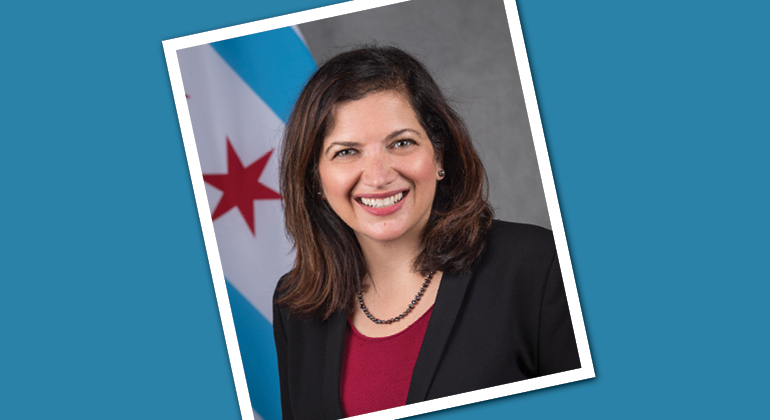Breaking Barriers: A Reflection on Jewish Disability Awareness, Acceptance & Inclusion Month

As we honor Jewish Disability Awareness, Acceptance & Inclusion Month in February, I reflect on my own experiences with these themes over my life and at JCC Chicago. I grew up in West Rogers Park, just blocks from Bernard Horwich JCC. I remember swimming in the pool with friends, playing on the softball team, spending summers at Apachi Day Camp, picking up my younger brother from his JCC Early Childhood classroom and learning about my Jewish culture and identity. Living so close to the building, my parents allowed me and my brother to walk there on our own, providing a sense of independence and community. It was a center where I always felt welcomed and included.
Growing up with a disability, I did not always feel this sense of acceptance. At 18 months old, I was diagnosed with a hearing loss and the doctor who told my parents I was deaf also told them that I would not be able to talk, communicate or have a normal life. My parents were determined to prove that doctor wrong. I began going to speech and auditory therapy to learn how to hear with my hearing aids, and how to talk. I learned how to read at three years old, which helped me to access language and begin to increase my understanding of our world. I learned how to read which helped me learn how to read lips, a primary way that I communicate, and I also learned American Sign Language.
Because of my disability, I became aware of which spaces were accepting and welcome, and which ones were not. And when I encountered spaces that were not accessible, I sought ways to increase accessibility, and developed effective strategies. This interest led me to devote my career as disability rights attorney and advocate. I currently serve as the Commissioner for the City of Chicago Mayor’s Office for People with Disabilities (MOPD) and I work to advance our vision of making the City of Chicago the most accessible and inclusive city in the world.
What is often missed when talking about disability is how having an accessible experience can benefit not only the person with a disability, but also their family. JCC Chicago’s accessibility and inclusion efforts allowed for me to participate and subsequently my family also participate and feel a sense of belonging. Last year I had a full circle moment, when I returned to Bernard Horwich JCC for the ribbon cutting of the brand-new adaptive playground. It was a special experience for me as I returned to the playground that I once frequented as a child.
The J’s commitment to accessibility and inclusion continues in many other ways specifically with their creation of a Social Services team including an Inclusion Manager and Coordinator focused on ensuring DEI is a priority in all facets of the agency.
This month, I encourage you to look at your community and identify what accessibility is available and identify what you can do to remove any barriers, so that anyone is invited and welcome. Some examples:
- Assign a member of your organization to be a point person on accessibility.
- Host a disability awareness training (MOPD offers free training)
- Inform yourself on appropriate terminology on disability – for example, say disability, not handicapped, or deaf and hard of hearing, not hearing impaired. Check out MOPD’s guide on Inclusive Terminology for more information.
- Conduct a self-audit of your organization or building for physical, program and communication access.
- Don’t forget about digital access – ensure your website is accessible with screen readers. Add alt text and captions to your social media.
- Set up a task force or committee focused on accessibility and obtain feedback from your community on accessibility ideas and needs.
- Celebrate disability! Host an event or gathering for Jewish Disability Awareness, Acceptance & Inclusion Month.
Rachel Arfa is a West Rogers Park native, where she frequented Bernard Horwich JCC. She currently serves as Commissioner of the City of Chicago Mayor’s Office for People with Disabilities, where she works every day to make the City of Chicago the most accessible and inclusive city in the world.






